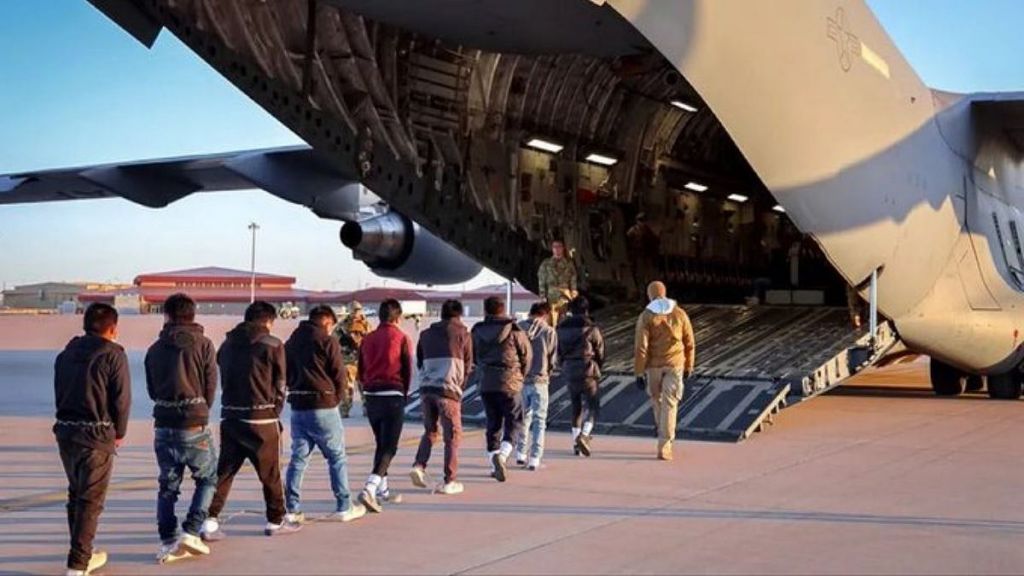
When an American military aircraft carrying 104 illegal Indian immigrants landed in Amritsar, Punjab, it marked one of the most disgraceful moments in post-Independence India. The sight was both humiliating and heart-wrenching: deportees chained and handcuffed like convicts, with only one toilet on board for over a hundred people. Many remained starving for up to 40 hours because their handcuffs were not removed even for meals.
Most of these unfortunate individuals were Gujaratis and Punjabis, duped by agents into seeking their American El Dorado through illegal means. Their crime? A desperate dream to better their lives in a foreign land. The same desire that forced the Europeans to move to the New World in the 16th century onwards.
This grossly inhuman treatment followed President Donald Trump’s executive order to expel illegal immigrants. While Indians were humiliated on a military aircraft, Mexicans and Colombians fared better. When the US attempted similar deportations to those countries via military planes, they firmly resisted, allowing their citizens to return only on commercial flights, not military carriers.
In contrast, India meekly accepted this disgraceful transfer without protest. Why did we fail to stand up for the dignity of our people? Couldn’t India have insisted on passenger planes instead of this humiliating, cattle-like transfer? Better still, why didn’t the government send its own aircraft to bring back citizens with dignity? India has successfully conducted large-scale evacuations in the past.
During the Kuwait War, thousands were airlifted. More recently, during the Russia-Ukraine conflict, an aircraft rescued stranded Indian students. The same could easily have been done here. A key question remains: was this mode of deportation even compliant with international norms, particularly the Geneva Conventions governing humane treatment? A strong refusal to accept citizens treated like livestock could have forced Trump’s administration to reconsider its approach.
India’s timidity in this episode stands in sharp contrast to leaders like Indira Gandhi, who firmly opposed the presence of the American Navy’s Seventh Fleet anywhere near the Indian ports during the Bangladesh crisis. China and Canada have also challenged Trump’s arrogance.
Why should India tolerate humiliation in the name of imaginary friendship? The government must demand accountability and ensure that future deportations are conducted with respect for human dignity. Many more Indians remain detained in the US, awaiting deportation. India should send a clear message: it will not tolerate the mistreatment of its citizens.
If India fails to act, it risks becoming complicit in its own degradation. India’s silence in the face of such humiliation sets a dangerous precedent. A nation that does not protect the dignity of its citizens abroad risks diminishing its standing on the global stage. It’s time for India to assert itself, demand respect, and ensure humane treatment for all its people wherever they may be.